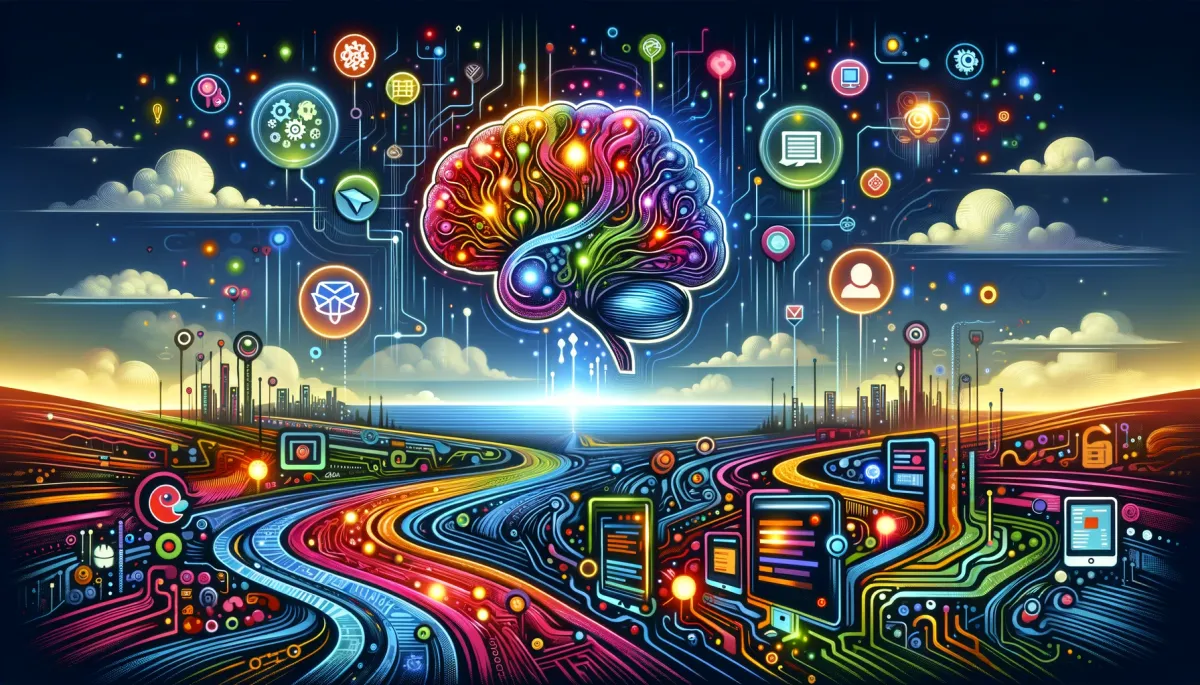
Unleashing the Power of AI in Web Development: A Deep Dive into OpenAI's API
Introduction to AI and OpenAI API Welcome to the future of web development, where Artificial Intelligence (AI) is no longer just a buzzword but a revolutionary tool. At the forefront of this revolution is the OpenAI API, a platform that offers developers access to advanced AI models like ChatGPT.
Overview of ChatGPT ChatGPT is a state-of-the-art language model developed by OpenAI. It excels in understanding and generating human-like text, making it an invaluable asset for various online applications.
Importance for Web Development In the realm of web development, the OpenAI API is a game-changer. It offers unprecedented capabilities in enhancing user interaction, content creation, and overall website functionality.

Enhanced User Engagement: AI-driven interfaces, like ChatGPT, make websites more interactive and responsive. They can engage users in natural, conversational ways, vastly improving the user experience.
Efficient Development Processes: The integration of AI can streamline the development process. For instance, developers can use AI to generate code snippets, debug programs, or even automate certain aspects of web design, significantly reducing development time and effort.
Sophisticated Data Handling: AI excels in handling and processing large datasets. Web developers can leverage this to create dynamic, data-driven websites that can adapt and respond in real-time to user interactions or changes in data.
Personalization at Scale: AI algorithms can analyze user behavior and preferences, allowing developers to create highly personalized web experiences. This level of customization was previously labor-intensive and difficult to scale.
Accessibility Improvements: AI can also play a crucial role in making websites more accessible. For example, AI can be used to automatically generate alt text for images or to transcribe and caption video content, making websites more inclusive.
Search Engine Optimization (SEO): AI tools can optimize website content for search engines, enhancing online visibility and reach. AI-driven SEO strategies can analyze trends and suggest content adjustments to improve rankings.
Security Enhancements: AI can bolster web security by identifying and responding to potential threats in real-time. This proactive approach to security is crucial in a landscape where threats are constantly evolving.
Cost-Effective Solutions: By automating various aspects of web development and maintenance, AI can offer cost-effective solutions for businesses. This reduction in time and resources for routine tasks allows for a greater focus on innovation and user experience.
Future-Proofing Websites: As technology advances, AI integration ensures that websites remain relevant and competitive. AI-driven websites can adapt more quickly to new trends, technologies, and user expectations.
Customer Service Transformation One of the most impactful uses of AI in web development is in customer service. AI-driven chatbots can handle inquiries with ease, providing quick and accurate responses, thus elevating the customer service experience.
Content Creation and Management AI can assist in creating diverse content for websites. From writing engaging blog posts to crafting compelling product descriptions, AI streamlines the content creation process, ensuring consistency and quality.
Personalization and User Experience By leveraging AI, websites can offer personalized experiences to users. AI algorithms analyze user behavior to display tailored content, recommendations, and more, enhancing user engagement.
Data Analysis and Business Insights AI excels in processing and analyzing large volumes of data. This capability enables businesses to gain insights into customer preferences and market trends, guiding strategic decisions.
Multilingual Support and Global Reach The OpenAI API breaks language barriers, offering multilingual support. This feature allows businesses to expand their reach and connect with a global audience effectively.
Automating Repetitive Tasks AI can automate various repetitive tasks on websites, such as form processing, data entry, and more. This automation boosts efficiency and allows human resources to focus on more critical tasks.
E-commerce and Online Shopping In e-commerce, AI transforms how customers shop online. From personalized shopping experiences to AI-powered customer support, it enhances every aspect of online retail.
SEO and Online Visibility AI tools can also assist in optimizing website content for search engines. This helps in improving a website’s visibility and ranking, driving more organic traffic.
Educational and Training Tools Educational websites can leverage AI to create interactive learning experiences. AI can tailor educational content to individual learning styles, making education more accessible and engaging.
Real-World Examples Many successful businesses are already harnessing the power of OpenAI’s API.

Duolingo: This language learning platform uses AI to personalize learning paths for users. It employs AI algorithms to adapt lessons based on user performance and preferences, making language learning more efficient and engaging.
Shopify: E-commerce platform Shopify uses AI for various features, including chatbots for customer service and personalized product recommendations. This helps create a more tailored shopping experience and improves customer engagement.
Grammarly: Grammarly uses advanced AI algorithms to provide writing assistance. It goes beyond basic spell-checking to offer suggestions for tone, clarity, and style, enhancing the overall quality of written content.
Zapier: Zapier, known for automating workflows, integrates AI to help users create more efficient automation sequences. This assists in streamlining tasks across various web applications and services.
HubSpot: In digital marketing, HubSpot utilizes AI for better customer relationship management, lead scoring, and content personalization, which helps businesses target their marketing efforts more effectively.
Hootsuite: This social media management tool uses AI to analyze social media trends and user engagement. This assists in scheduling posts at optimal times and creating more impactful social media strategies.
Salesforce: Salesforce integrates AI for customer relationship management. Its AI tool, Einstein, helps in analyzing customer data, predicting trends, and automating tasks for sales and marketing teams.
Spotify: Spotify uses AI for music recommendations. By analyzing user listening habits, it creates personalized playlists and suggests new tracks tailored to individual tastes.
Canva: The graphic design platform Canva uses AI to suggest design templates and layouts. It helps users with little design experience create professional-looking graphics more easily.
Voice-Enabled Assistants: Websites integrating voice-enabled assistants like Google Assistant and Amazon Alexa are using AI to improve user interaction, allowing for hands-free navigation and accessibility features.
Challenges and Considerations While AI offers numerous benefits, it's also essential to consider challenges such as data privacy, ethical use of AI, and ensuring the technology is accessible to all.
Future of AI in Web Development The future of AI in web development is bright and full of potential. As AI technology continues to evolve, we can expect even more innovative applications that will further transform the digital landscape.

